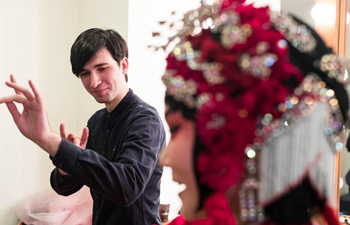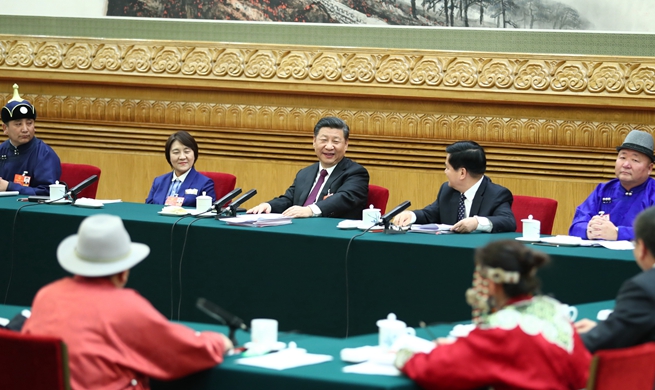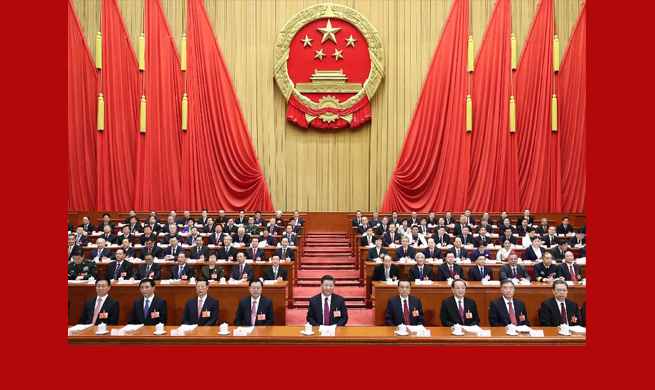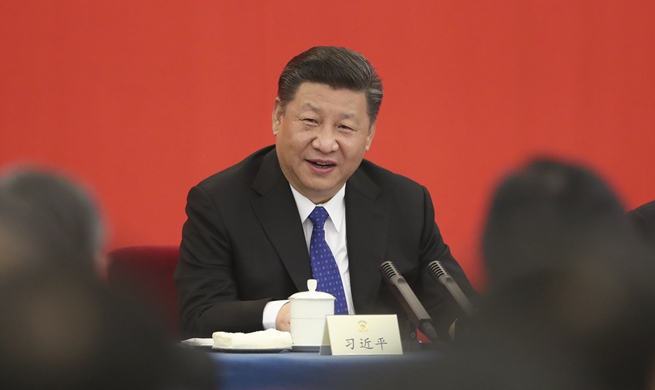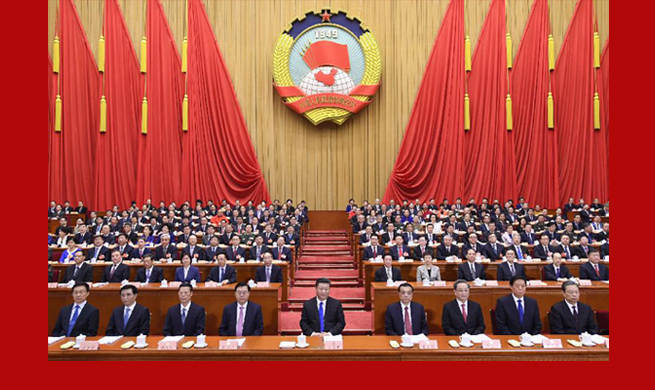RAMALLAH, March 6 (Xinhua) -- The implementation of the internal Palestinian reconciliation agreements has been stuck in stalemate due to internal differences and external intervention, analysts said Tuesday.
The inactivity of President Mahmoud Abbas Fatah Party and Islamic Hamas movement keeps the ongoing deadlock and an internal political and geographical split that has been going on since the summer of 2007, said the analysts.
Mustafa Ibrahim, a Gaza-based political activist said that "the internal Palestinian reconciliation has turned into words only but not deeds on the ground," adding "this all goes on amid repeated excuses and slogans made by both parties, who didn't show until now any seriousness to implementing what they had agreed upon."
He stressed that both rival groups "still don't have the real intentions and will to end the internal Palestinian split, adding "their differences are not only related to differences on internal files that need to be resolved, but also the matter becomes a waste of time and a Manoeuvring made by both parts of division."
Ibrahim stressed that Palestinians in the Gaza Strip are those who pay the heavy price for this stalemate of the internal reconciliation as well as the Palestinian cause, which faces a real challenge mainly after the declaration of U.S. President Donald Trump that Jerusalem is the capital of Israel on Dec. 6.
Fatah and Hamas had signed in October last year an Egyptian-brokered reconciliation agreement on handing over power to the Palestinian (National) Authority consensus government.
According to the agreement, Hamas should end the transfer of power to the PNA by the beginning of December.
However, endless disputes and feuds between the two big rival groups had urged them to postpone the final date of power transfer until a further notice.
Meanwhile, the consensus government kept complaining that it hasn't received any full authority in Gaza, in accordance to the agreement.
Instead and still, the two groups never stopped trading accusations on who is responsible for keeping the implementation stalled.
On Feb. 25, a high-ranking Egyptian security intelligence services delegation arrived in Gaza and is still holding talks and meetings with all political, private and community sectors in the Gaza Strip.
So far, nothing has been progressing to convince the two Palestinian rivals to carry on with implementing the reconciliation deals.
Hani Habib, another political analyst from Gaza said that the Palestinian public "has lost faith in the fact and the efforts to achieve internal reconciliation, because of the two-sides inability to make a breakthrough in this file."
He pointed out that the file of reconciliation in practice "is stalled because of the persistence of obstacles despite all the interventions and pressures that had been practiced on the two parties."
He said he believes that the problem which hinders achieving reconciliation "is the lack of real and effective will of both Fatah and Hamas, in addition to the fact that the Palestinian situation as a whole "is apparently part of a new political rearrangement in the region."
The ongoing failure to achieve internal reconciliation coincided with the recent declaration of Palestine Liberation Organization (PLO) that it intends to convene the Palestinian National Council in May amid expectations that Hamas and Islamic Jihad might join and participate.
In this regard, Speaker of the National Council (PNC) Salim Zanoon said on Monday that preparations for the council will be no later than the fifth of May.
He said that the PNC General Assembly would be held in a regular session with its current members, after Hamas and Islamic Jihad have not responded to the invitation to clarify their positions on participation in the council.
The PNC is the parliament in exile of the PLO, and includes more than 750 members, representatives of Palestinian factions, forces, unions and popular groups inside and outside the Palestinian territories.
Since its establishment, the PNC has held 22 sessions, the most recent of which was a regular session in the Gaza Strip in 1996 and a special session in held in 2009 in Ramallah.
The Central Council, the second largest PLO institution after the PNC, met in Ramallah mid of January without the participation of Hamas and Islamic Jihad.
Hani al-Masri, the West Bank based political analyst from the West Bank warned that convening of the PNC General Assembly without internal consensus would further entrench the internal division.
He stressed that "convening the PNC requires first to end the internal division and without this, convening the council will mean the consolidation of this division, in a time that the Palestinian unity becomes an indispensable necessity and not just a choice."
Al-Masri warned that the move to hold the PNC without consensus may mean a formal announcement of the failure of the file of reconciliation, "which is still stuck at the mercy of government empowerment, a rubber term understood by each feuding parties to suit its whims and interests."
He concluded that "what is required and possible, if there is conviction and will, is to solve the reconciliation file in a comprehensive package, including several tracks going together in parallel and semi-synchronous on the bases and rules of real partnership and a unified political program."








